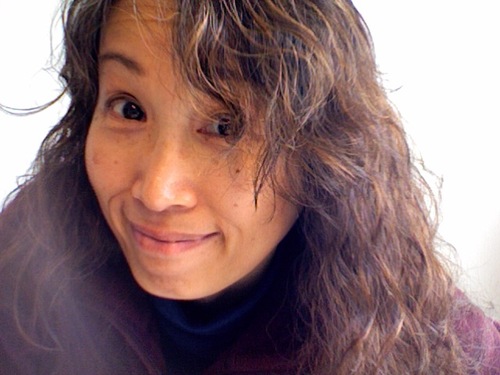Pre-West Interview: Yoko Harada


This summary was graciously written by Nola Stowe. She's a programmer, the co-founder of DevChix, and a prolific teacher. She recently ran ClojureBridge Austin. Please shout out to her and say thanks!
Talk: Joys and Pains to Write a Clojure Curriculum for Beginners
Yoko Harada will be speaking on ClojureBridge and the challenges of writing a curriculum for beginner programmers.
Background
ClojureBridge aims to increase diversity within the Clojure community by offering free, beginner-friendly Clojure programming workshops for women. The curriculum is a work in progress which you can see here. They can use help and you can look at the issues on github to see what is needed!
Please watch the introductory talk on ClojureBridge by founder Bridget Hillyer.
About Yoko Harada

This interview was graciously conducted by Nola Stowe. She's a programmer, the co-founder of DevChix, and a prolific teacher. She recently ran ClojureBridge Austin. Please shout out to her and say thanks!
Introduction
Yoko Harada is the next interview participant. She is giving a talk at Clojure/West about developing the ClojureBridge curriculum. The background to her talk is available, if you like.
Interview with Yoko Harada
Nola: How long have you been doing Clojure and how did you get into it?
Yoko: My experience is quite sparse, but I've been using Clojure for about 4 years. Since I'm a JVM language lover, I had a great interest in Clojure, which was very different from other JVM languages. I started ClojureScript integrating Ruby gem at first.
Nola: What languages did you do before Clojure?
Yoko: Mostly, Java and Ruby.
Nola: What are your thoughts on Clojure being a first language or do you think its more suited to someone who has some experience in programming?
Yoko: It depends. Thinking of the time I was a student, for some folks, lisp was the first language and did well using Lisp. For many people, Clojure coding is not similar to how they think. For example, in OOP, "I have a cup of soup. let's add some spice", in Lisp, "Let's add something and other stuff, what about soup and spice." Sometime, the latter is productive in coding while sometime, the former is. I admit OOP is natural for vast majority. But, at the same time, I don't think programming experience will help to think like Lisp.
Nola: What kinds of help do you need for ClojureBridge?
Yoko:
- spread the word
- plan to organize ClojureBridge
- have experiences of organizing, TAing, and others of ClojureBridge
- involve yourself in ClojureBridge curriculum improvements based on the experience
- become a ClojureBridge board member
- become a ClojureBridge mentor and help people who firstly organize ClojureBridge
- donate and support ClojureBridge financially. The workshop needs venue, some food and. sometime, coaches/TAs' travel expense
Nola: What is your favorite clojure library?
Yoko: Hoplon
Nola: Thanks for the interview. It was very informative.